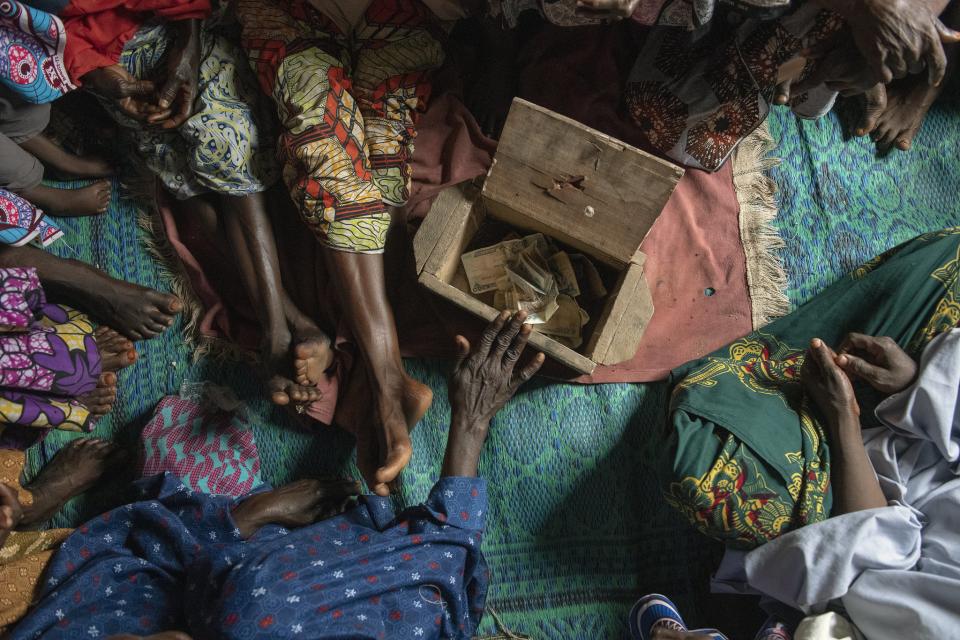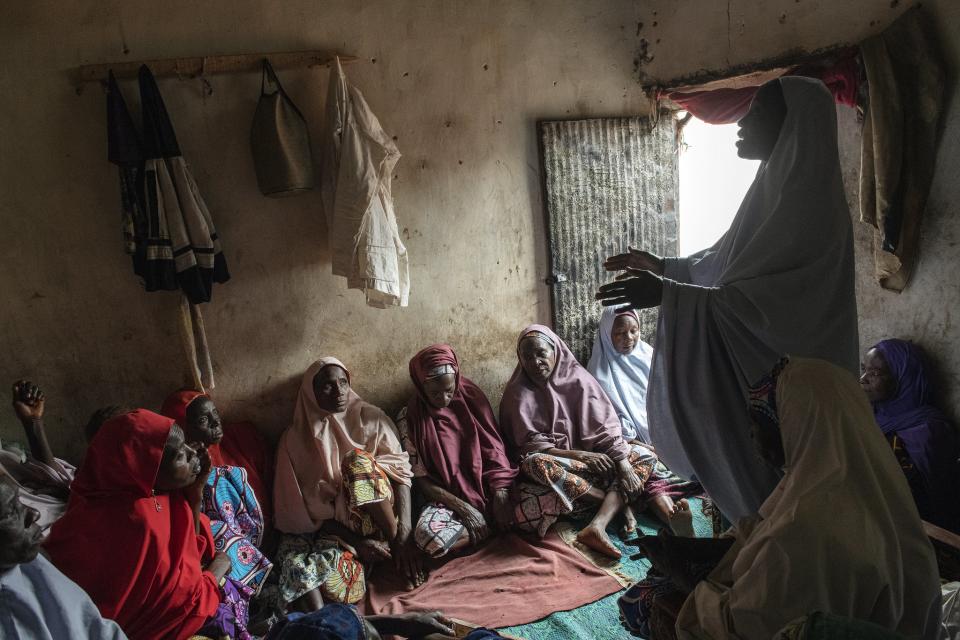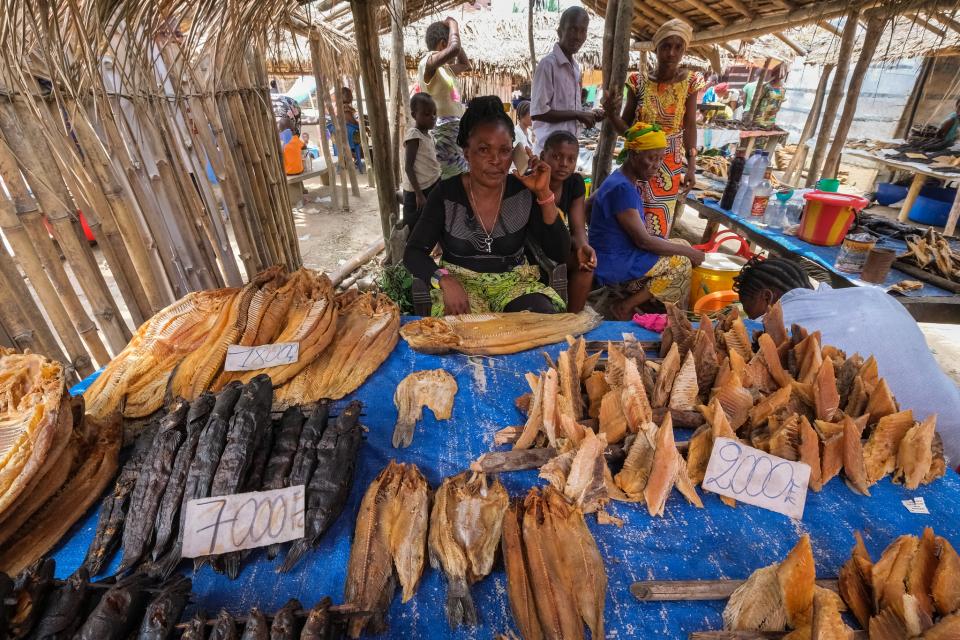Implementing and evaluating gender-transformative approaches in agrifood systems: What does the evidence say?
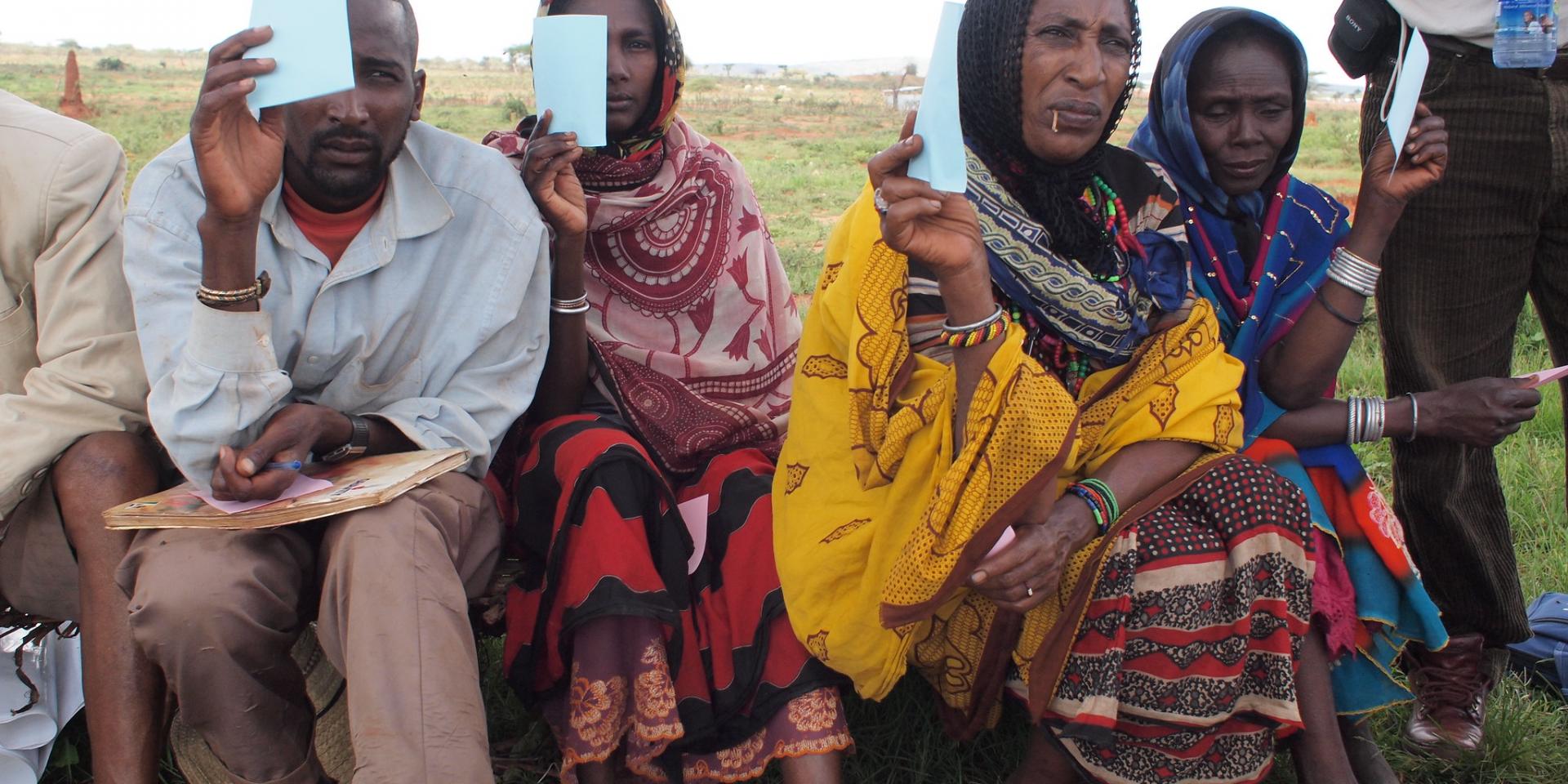 Photo: Anton Eitzinger/CIAT.
Photo: Anton Eitzinger/CIAT.
Key Messages
- The evidence base for the effectiveness of gender-transformative approaches (GTAs) in agriculture and food system interventions is small and weak, and many studies do not focus on specifically evaluating these approaches and methods.
- While the very limited quantitative evidence suggests that interventions that integrate GTAs have weak or no effects on many outcomes for women’s empowerment outcomes (including gender norms), qualitative evidence shows that, in some instances, shifts in gender roles could eventually lead to change in gender norms.
- Changes in norms can take generations, so studies examining different approaches to GTAs, including different intervention durations and intensities, and longer-term studies are needed to better understand the effects of GTAs on households and communities.
Gender inequality remains a pervasive challenge across the globe. At best, existing approaches such as women-in-development (WID) and gender and development (GAD) have been gender-accommodative or -sensitive, and treat women as a homogeneous group divorced from their social context. These approaches have mainly attempted to treat the symptoms and not the causes of gender inequality.
Gender transformative approaches (GTAs) involve engaging with and transforming the very causes—the norms—responsible for gender inequality, by using context-specific and constructive strategies such as:
- social and behavioral change communication (SBCC)
- engaging both men and boys and addressing masculinities
We conducted a systematic review (forthcoming) to assess the effectiveness of GTAs, document implementation challenges, catalogue interventions with GTAs, and how GTAs address gender inequalities.
Most studies couple social and behavioral change with other interventions
The systematic review is envisioned to examine interventions with GTA components aimed at transforming gender norms among men and women engaged in agriculture in low- and middle-income countries.
It includes impact evaluations (experimental designs and non-experimental designs with a valid comparison or control group), process evaluations and qualitative or mixed-method studies of eligible interventions. Twenty-three of the 30 studies are from sub-Saharan Africa.
Most studies include multi-component interventions that coupled SBCC interventions with capacity-building interventions, asset transfers or technological innovations.
The SBCC interventions identified in various studies in this review were:
- gender dialogues to raise awareness and provide a space for critical reflection to influence change in gender norms
- gender-transformative communication tools or curricula, such as Nurturing Connections©
- household-level interventions to promote joint decision-making and ownership
All of the studies’ interventions are delivered in communities, and some of the studies involve interventions at multiple levels such as household and community.
Interventions with GTAs have weak or no effects on gender norms and empowerment
The meta-analysis of the studies suggesting causal inference indicated that while they showed improvements for women to access credit, there were relatively small effects on increasing women’s asset and land ownership.
While the improvements in some of the indicators may pave the way towards gender equality over time, the qualitative evidence also suggested some cases of GTAs are already influencing household-level changes in gender roles and cooperation among couples.
GTAs were variously implemented through: partnership between various stakeholders, such as members of cooperatives, producer organisations and communities; visualization tools for visioning; analysis planning and change tracking by individuals, households or stakeholder groups; and making safe spaces available in the community to learn and practice joint decisions and control over resources.
Unsurprisingly, the very norms that the interventions aimed to transform posed implementation challenges. This was evident in rigid norms about land ownership where women seldom owned land and, even if they owned land, it was not of good quality.
The differences in preferences and attitudes among older and younger women, women of different marital status, and cultures that sanctioned multiple wives also posed challenges for implementing interventions. Lack of coordination among partners such as governments, non-government organizations and communities, and resource constraints were some of the other reported difficulties.
Weak evidence base for GTAs should not halt GTA research and development
The very small evidence base, at best, mildly supports including GTAs as part of interventions.
However, changes in norms and behaviours are not always easily captured by quantitative methods or indicators. The divergence in the results of the qualitative and quantitative evidence attests to this. Studies should also assess longer-term effects because behavioral changes span generations and evaluations at the end of two to three years do not capture these results.
So, given the very limited evidence, practitioners should continue to experiment with GTAs and include robust mixed-methods evaluations to assess the effectiveness of GTA components.
Designs that compare interventions with and without GTAs, preferably with an untreated control arm, are especially warranted. Implementation studies should include activities specifically focused on evaluating GTA components, as well as interventions as a whole. And more studies are needed, especially from outside sub-Saharan Africa.
It is also important to be systematic about the processes involved in and capacities needed to implement GTA interventions effectively. Studies examining different approaches to GTAs, including different intervention durations and intensities, will be useful for us to better understand how GTAs can contribute to improving agriculture and food systems as well as gender equality.
##
Suggested citation:
Singh, Sabina, and Puskur, Ranjitha. 2023. Implementing and evaluating gender-transformative approaches in agriculture and food systems: What does the evidence say? CGIAR GENDER Impact Platform Evidence Explainer. Nairobi, Kenya: CGIAR GENDER Impact Platform.
References
Empowering Women and Building Sustainable Food Systems: A Case Study of Cuba's Local Agricultural Innovation Project
Benítez Barbara, Nelson Erin, Romero Sarduy María Isabel, Ortíz Pérez Rodobaldo, Crespo Morales Anaisa, Casanova Rodríguez Caridad, Campos Gómez Maybe, Méndez Bordón Aliek, Martínez Massip Annia, Hernández Beltrán Yaima, Daniels Jordan. 2020. Empowering Women and Building Sustainable Food Systems: A Case Study of Cuba's Local Agricultural Innovation Project. Front. Sustain. Food Syst., 19 November 2020. Volume 4. https://doi.org/10.3389/fsufs.2020.554414
Gender norms and economic empowerment intervention to reduce intimate partner violence against women in rural Côte d’Ivoire: a randomized controlled pilot study
Gupta, J., Falb, K.L., Lehmann, H. et al. Gender norms and economic empowerment intervention to reduce intimate partner violence against women in rural Côte d’Ivoire: a randomized controlled pilot study. BMC Int Health Hum Rights 13, 46 (2013). https://doi.org/10.1186/1472-698X-13-46
Spiraling up and down: Mapping women’s empowerment through agricultural interventions using the community capitals framework in rural Ethiopia
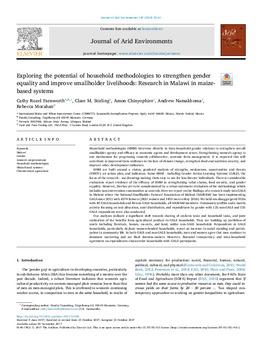
Exploring the potential of household methodologies to strengthen gender equality and improve smallholder livelihoods: research in Malawi in maize-based systems
Gender mainstreaming in value chain development: Experience with Gender Action Learning System in Uganda
Mayoux, Linda. 2012. Gender mainstreaming in value chain development: Experience with Gender Action Learning System in Uganda. Enterprise Development & Microfinance vol 23(4). 10.3362/1755-1986.2012.031.
